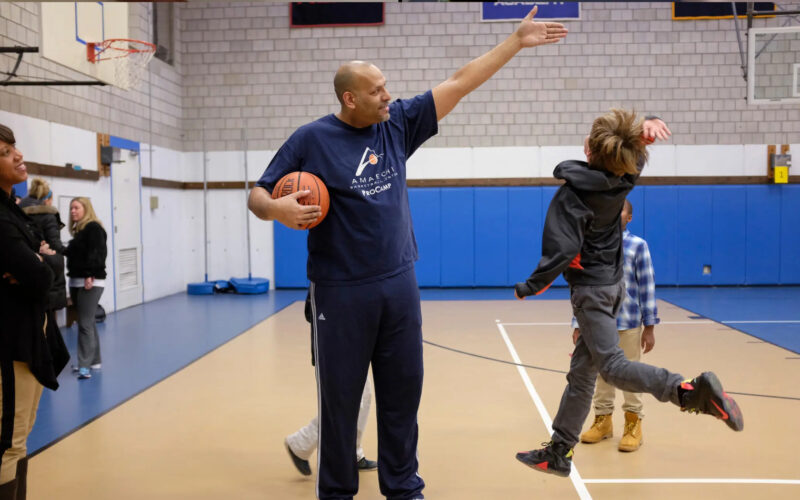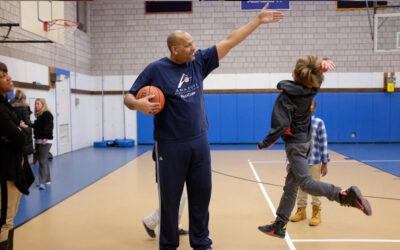This is the second in a 5 Tips Series, looking at the positive role Lead Dads can play when it comes to kids and sports. Last week’s tip looked at the cost of kids’ sports. Next week looks at the role Dads play as coaches.
Kids + Athletic Excellence = College Sports Scholarships.
It’s an appealing formula, with just a few caveats.
Your kids are not getting a Division 1 college scholarship – and that’s okay as long as you know this when you’re driving them all over the map.
If your child does get a Division 1 college scholarship, he or she is not going to play professionally.
And if your child plays professionally, chances are they’re going to look back and say things that contradict everything the other parents thought would get their children to that same point.
Consider three professional athletes I wrote about in the New York Times when I was a columnist there.
John Amaechi first picked up a basketball when he was 17, after suffering through years of playing rugby in England. He soon left for Ohio to finish high school. Six years later, he started at center for the Cleveland Cavaliers and went on to have a solid N.B.A. career.
Mike Trombley, a quarterback and a pitcher in high school, went to Duke University without an athletic scholarship. He made the baseball team and was drafted in his junior year by the Minnesota Twins, pitching for 11 seasons.
And Travis Dorsch never would have thought to play football had he not scored a goal in soccer from midfield as a boy in Montana. A friend suggested he consider becoming a kicker. He got a scholarship to Purdue University, where he earned All-American honors and went on to kick for the Cincinnati Bengals.
I think about these three and others I wrote about as I watch the rush this month for kids to end their summers early and try out for elite teams – some at incredibly young ages.
The punchline from that NYT column was this: “These three athletes, now in their 30s and 40s and from different backgrounds, agree on one thing: The way youth sports are played today bears no resemblance to their childhoods, and the money, time and energy that parents spend is probably misplaced.”
In other words, they are not models – they are outliers.
Dorsch said he had no problem with parents spending big for their kids, as long as they could afford it. But he had a caveat: “What’s wrong is when that investment brings out some sort of negative parent behavior. Or if the kid says mom and dad are spending $10,000 on me a year, what are they expecting in return? Is it a college scholarship? The chances are slim to none of a kid getting a scholarship.”
So what should kids and parents returning to pre-season practice right now think?
Five takeaways:
1) It’s not all or nothing. Sports could help your children get into college – just as other activities help children stand out.
2) The cost is more than financial. Kids burn out. Siblings grow resentful. Check your ego and make sure you’re doing this for the right reason: your child loves the sport and is learning so much from it.
3) Life lessons. Sports teach lessons in abundance. Teamwork. Being self motivated. Winning but most of all losing. Don’t forget how important losing is.
4) Money and time are finite resources.
5) Childhood matters. This is the time in life where we get to try out all different things. Remember this.
Reasonable people may disagree with these points. But it’s important to remember that these are kids’ sports. They’re supposed to be fun.









